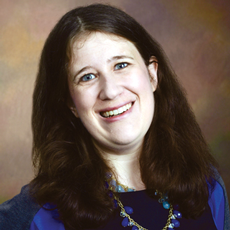
Many of those in healthcare, including myself, may be fairly rigid when it comes to medications and treatment: Show us the evidence of efficacy and the data around the pros and cons, including side effects, to allow an informed decision.
That’s why I’ve tended to raise an eyebrow when both vendors and people I know have touted the benefits of CBD (Cannabidiol) products.
But I’ve been interested to read that one survey of arthritis patients found that more than 50% of respondents had tried CBD to treat joint pain, with most stopping due to concerns about cost or legality. One of my friends told me that it helps with her inflammation and autoimmune flares, and it lets her sleep better. Another mentioned it helped with anxiety, while others have felt the price point isn’t worth it.
That cost should be on the mind of long-term care providers, as the business of CBD is real: Aeroflow Healthcare unveiled Aeroflow Naturals, a division of CBD products, this spring. The company noted that it’s confident further studies will demonstrated efficacy for conditions that may include Parkinson’s disease and multiple sclerosis. Notably, Aeroflow made a big point of noting it was working with Carolina Hemp Company and how reliable suppliers provide a Certificate of Analysis to confirm products are free of pesticides, heavy metals and other contaminants.
When I was working on the Aeroflow story, skilled nursing experts advised clinicians to learn about state regulations, while the Centers for Medicare & Medicaid Services declined to comment on CBD use.
But CMS’ lack of comment aside, the federal government is still listing the cannabis plant as a Schedule I controlled substance, said Chad Worz, PharmD, who leads the American Society of Consultant Pharmacists. While I don’t think anyone expects the feds to storm a nursing home over CBD products, skilled nursing providers have to be careful to follow state regulations.
“We feel that CBD and cannabis products have a role in healthcare. There’s good medical evidence for some conditions,” Worz told me Thursday.
He agreed that Aeroflow was being appropriately cautious in its use of a trusted supplier, noting that “some of the products are not produced in a safe manner or manufactured in a safe manner.” To give an example: I investigated giving one of my very elderly cats some form of CBD or medical marijuana for her arthritis last year, but I ultimately felt too concerned about giving her something unsafe. Also, I am incredibly square.
There are states, such as New York, where some facilities has figured out how to make it an option for residents, Worz said. To pursue this, it often means using outside caregivers with very specific guidelines.
Strict, documented procedures can keep facilities out of trouble, Worz said. But putting aside the legal or supply issues, he also reminded that nursing home clinicians and administrators recognize the lack of data around drug interactions related to CBD or marijuana-based medications.
Any over-the-counter product is something a resident should report to pharmacist and physician, he said, but we acknowledged how difficult this can be during an assessment.
One suggestion is breaking down questions into three parts:
- Are you taking over-the-counter medications?
- Are you taking vitamins and supplements ?
- Are you taking any CBD products?
“People assume, ‘If I can buy it over the counter, it is inherently safe,’” Worz warned.
But he also said that given the uncharted territory, while more data is needed, consultant pharmacists and the interdisciplinary team should listen to patients or residents who say CBD is working for them.
“When you look at CBD, always keep in mind we need to be patient-centric. If there’s a lack of evidence, then maybe we defer to them,” he posited.
That seems reasonable to me: We all want to alleviate suffering in long-term care. I still want to see large studies comparing CBD products to placebos. But in the meantime, if CBD or approved medical marijuana helps improve quality of life, let’s hope providers find a way to help seniors who want it.
Follow Senior Editor Elizabeth Newman @TigerELN.



